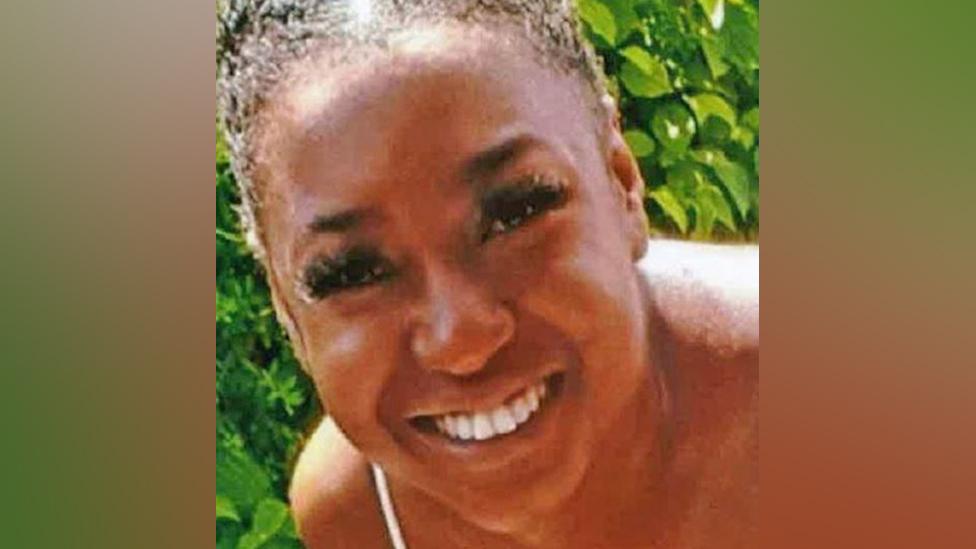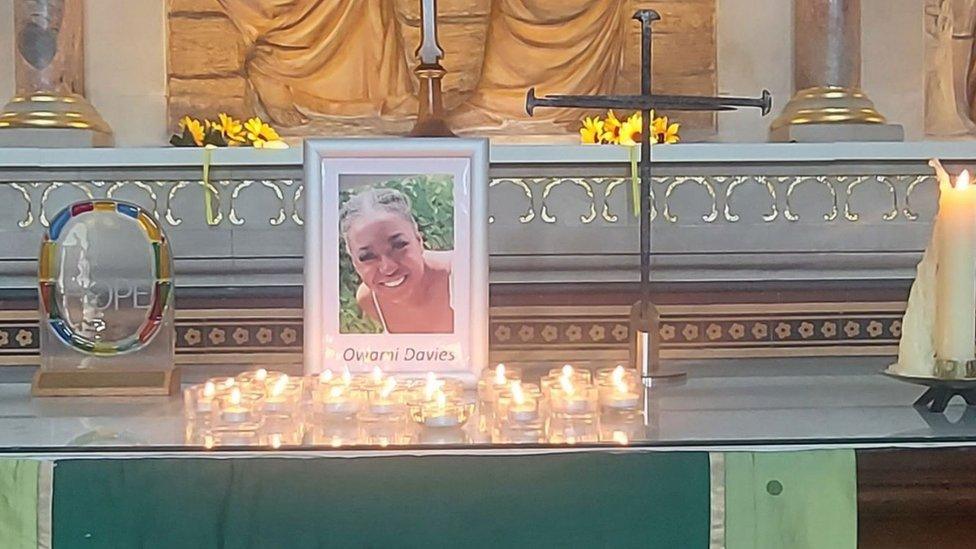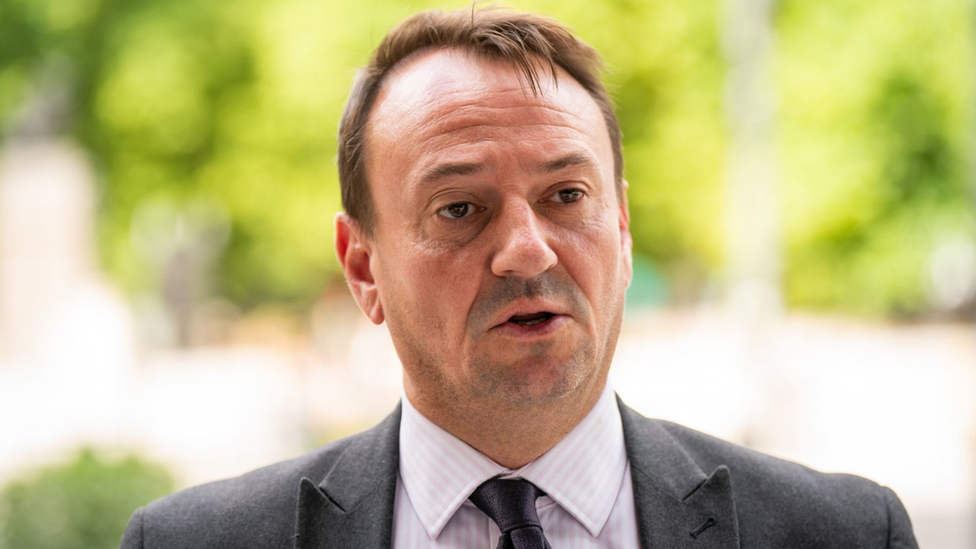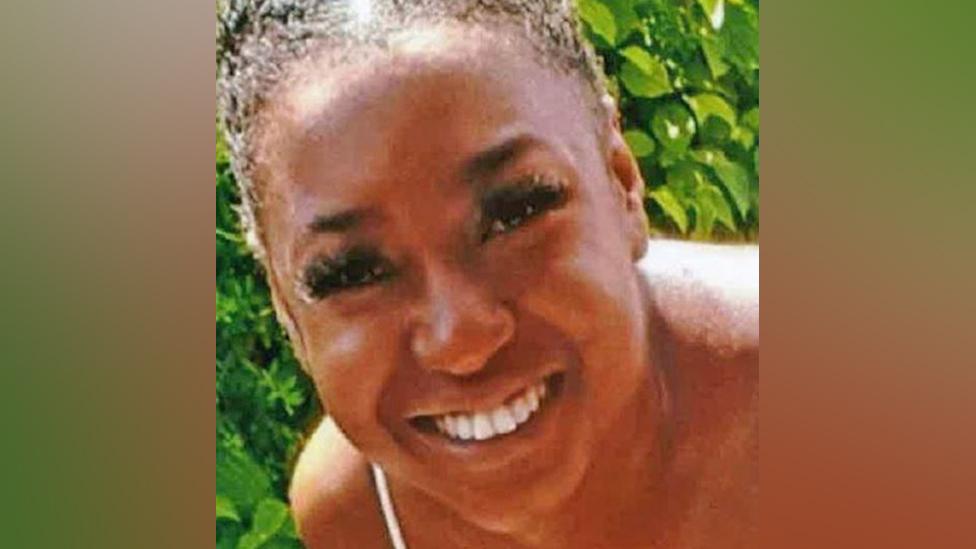Owami Davies: Missing student nurse could be sleeping rough
- Published

Owami Davies has not been seen for more than six weeks
Missing student nurse Owami Davies could be sleeping rough, detectives have said.
Ms Davies, who was studying nursing at King's College London, left her home in Grays, Essex, on 4 July.
She was last seen on CCTV in west Croydon three days later.
Police continue to trawl footage for 117 reported sightings of Ms Davies, who had experienced periods of depression.
Detectives said the 24-year-old has no money left on her Oyster card, used to pay on public transport, and no access to her phone or bank cards.
She was found asleep in a doorway in Clarendon Road, Croydon on 6 July while waiting for a friend, but told Metropolitan Police officers that she did not need help and left.

Ms Davies left her home in Grays, Essex, on 4 July and was reported missing to Essex Police two days later
Investigators said Ms Davies had used different names, but would not reveal what they were.
Officers said that she had experienced periods of depression in the past for which she needed medical treatment, and had also used alcohol to deal with the condition.
Five people have been arrested and bailed in connection with her disappearance - two on suspicion of murder and three on suspicion of kidnap - but the Met has said there was no evidence that she had come to harm.
'Still hopeful'
During a briefing with journalists on Monday, Det Ch Insp Nigel Penney was asked if it was realistic to still believe Ms Davies was still alive.
He said they were "hopeful", but had "grave concerns" over her not being sighted for so long, adding "there is no evidence that she's come to harm. We're still hopeful that we'll find her alive and well".
Police have CCTV showing her entering West Croydon station on 6 July and said she had gone to Croydon, a place she didn't know well, to meet a friend, but not managed to do this.
Officers have spoken to that friend, and have searched the house she went to visit.

A service was held by the chaplaincies of King’s College London and Guys and St Thomas' Hospital
Asked whether she could be sleeping rough, he said: "We're open to all possibilities and that is one current working hypothesis, that she is in that current situation with her life."
Det Ch Insp Penney did not rule out that someone could be exploiting her, telling journalists "that is a line of enquiry".
Ms Davies left her home in Grays, Essex, on 4 July and was reported missing to Essex Police two days later.
The Metropolitan Police officers who spoke to her on 6 July did not yet know that she was a missing person.
Essex Police initially graded Owami as a medium risk but she was classed as a "high risk" case when she was referred to the Met.

Det Ch Insp Nigel Penney urged people who don't feel comfortable speaking to police then to call the independent charity Crimestoppers
Mr Penney said: "On Wednesday 6 July, officers were called to the Clarendon Road area of Croydon.
"There were concerns for the welfare of a woman at the location.
"Officers attended and called the London Ambulance Service, but the woman stated she did not want assistance and left."
He said the student nurse had no injuries when police spoke to her and that an ambulance would always be called under the circumstances.
Her family and members of an Independent Advisory Group have seen body worn camera footage of the interaction, but it will not yet be released publicly.
The police watchdog, the Independent Office for Police Conduct (IPOC), is considering whether to investigate the police contact with Ms Davies that day.
The missing persons investigation was passed to the Metropolitan Police from Essex Police on 23 July, and taken over by the Specialist Crime squad on 1 August.
About 50 officers are currently working on the investigation, and they are getting advice from the National Crime Agency (NCA).

Follow BBC London on Facebook, external, Twitter , externaland Instagram, external. Send your story ideas to hellobbclondon@bbc.co.uk, external
Related topics
- Published18 August 2022

- Published19 August 2022

- Published7 August 2022
